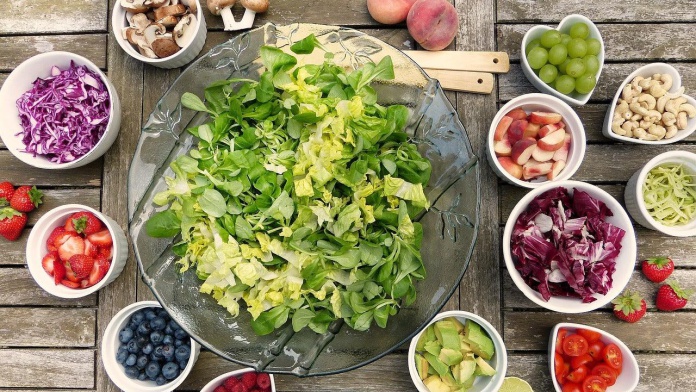
3 Ways To Ensure You Get Enough Protein On A Vegetarian Diet
Getting enough protein as a vegetarian can be tough, particularly if you are following a fat loss or muscle building diet. So, what can you do to ensure you get enough?
Well, with a bit or organisation and creativity it is actually easier than you might think. By reading this blog and applying some of the strategies below, you’ll be able to ensure you have enough protein in your diet, regardless of how ambitious your muscle building or fat loss goals are.
- Understand how much protein you need
This is probably the most important point when it comes to getting enough protein in your diet, and yet it is also the most overlooked. Too many people either give protein absolutely no consideration and so do not get enough, or they end up pursuing a completely arbitrary amount based on something they read on social media or overheard at the gym. This is rarely in line with their personal goals, and they often end up over or undershooting.
If your goal is to lose fat, you’ll want to aim to consume 2.3-3.1g of protein per kilogram of lean body mass, with lean body mass being your weight, minus the weight of your fat mass. For example, if you’re 100kg and 30% bodyfat, you would have 70kg of lean body mass. It’s hard to work out your exact lean body mass because knowing your bodyfat percentage is tricky (those bodyfat measuring scales are wildly inaccurate), but if you look at the ideal weight for someone of your height on a BMI chart it’ll give you a rough idea for you to work with.
*Note, this doesn’t mean that you should be this weight, or even that you would be healthier at this weight, it’s just a reasonable guess as to what your lean body mass is.
If you want to build muscle it’s little simpler, you only want to look to eat 1.6-2.2g of protein for every kilogram of total bodyweight. Go for the lower end if you carry a little more bodyfat, the higher end if you’re leaner.
Finally, if you just want to eat for general health then you only need to consume 1-1.4g of protein per kilogram of total bodyweight. Here, again, top end if you’re leaner.
This sounds complicated but should only take a couple of minutes to work out. Understanding how much protein you actually need in order to pursue your goals is the first step in ensuring your protein consumption is optimal.
- Track your protein
After understanding how much protein you need to pursue your personal goal, you then need to know how much protein you are consuming. You can do this by using apps that help track your calories and macros, or you can do it yourself by reading the labels and weighing your food. It’s a good idea to track all the food you consume, not just the foods you think are high in protein, as proteins in things like bread, vegetables, rice, etc, can all add up to a good amount.
- Optimise vegetarian sources of protein
By not eating meat and possibly fish, you are choosing to cut out many of the most protein dense foods, which means you will have to make the most of the protein from vegetarian sources. These will be eggs, dairy, and plant-based proteins. It’s a good idea to try to have some staple sources of protein in your diet that you will eat every week, so things like cheese, yoghurt and meat substitutes like Quorn or soy, though because the selection is a little less varied in comparison to diets that include meat and fish this can get stale, quickly.
In order to avoid things becoming a bit repetitive it’s a good idea to mix things up where you can. This will be key to making your vegetarian diet sustainable; you have to enjoy what you eat or else you’ll be miserable, and over time this makes healthy eating unsustainable. A good way to do this, particularly if you’re not a big fan of meat substitutes, is to look abroad for food inspiration. South and South Eat Asian cuisine has a lot of delicious vegetarian dishes that contain tofu, tempeh, or seitan, all of which are high in protein. It can be a bit intimidating cooking a new dish with unfamiliar ingredients, but you can get the hang of it quickly and it is a great way to add variety to your diet, as well as staple sources of protein.
Snacking on things like nuts and seeds is a good way to top up your protein levels and ensure you get enough healthy fats in your diet. Other snacks like cheese (I’d personally recommend Eatlean cheese snack bars) are also a great way to stay on top of your protein intake. Likewise, protein bars can be a good way to boost your intake, and most of these are vegetarian, though be careful to check the label.
Protein is an important part of any diet, whether you want to lose fat, build muscle, or maintain general health. By following these 3 tips you will ensure that you are able to mould your diet to you health and lifestyle goals, whilst still sticking to your vegetarian principles.